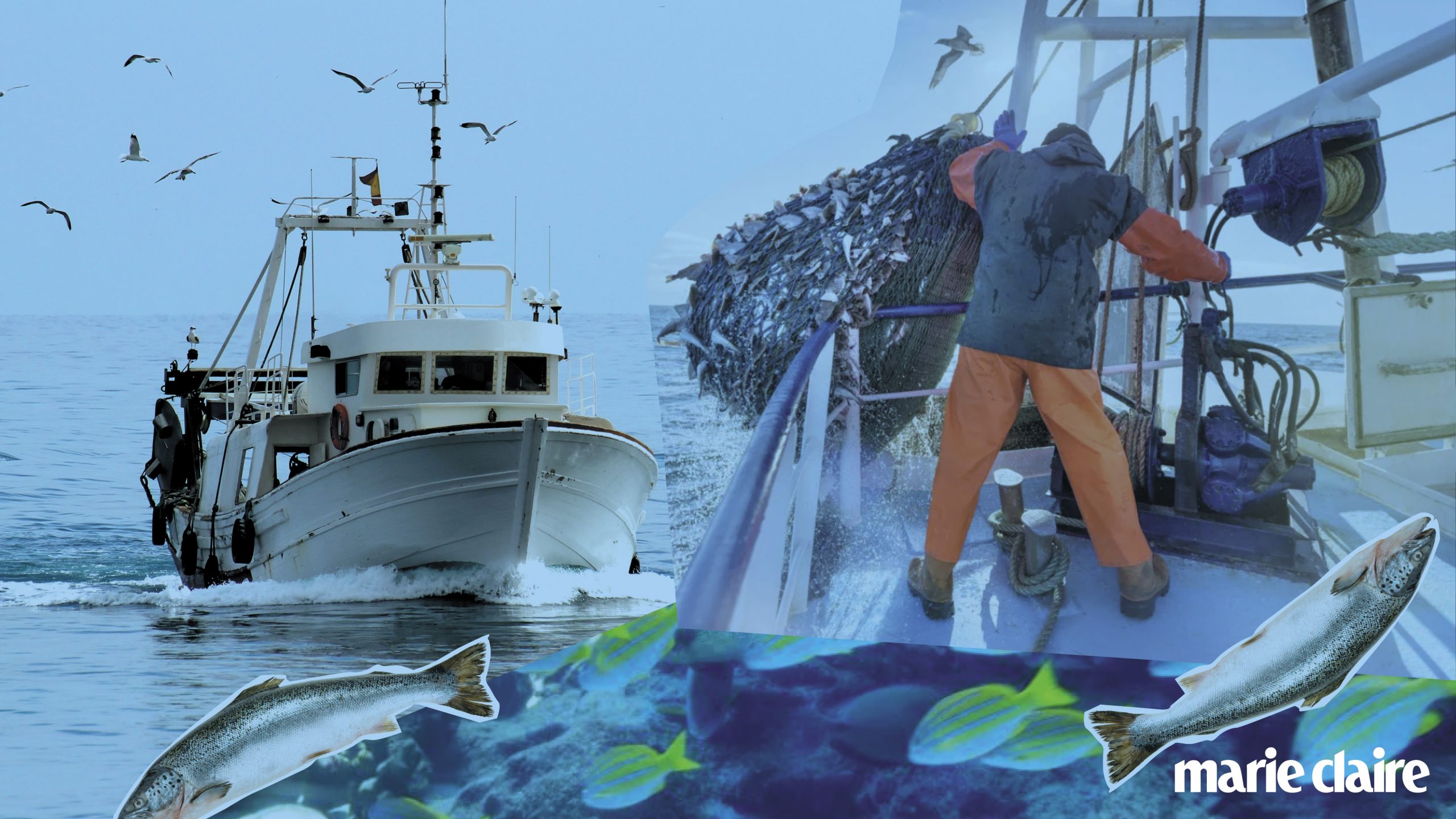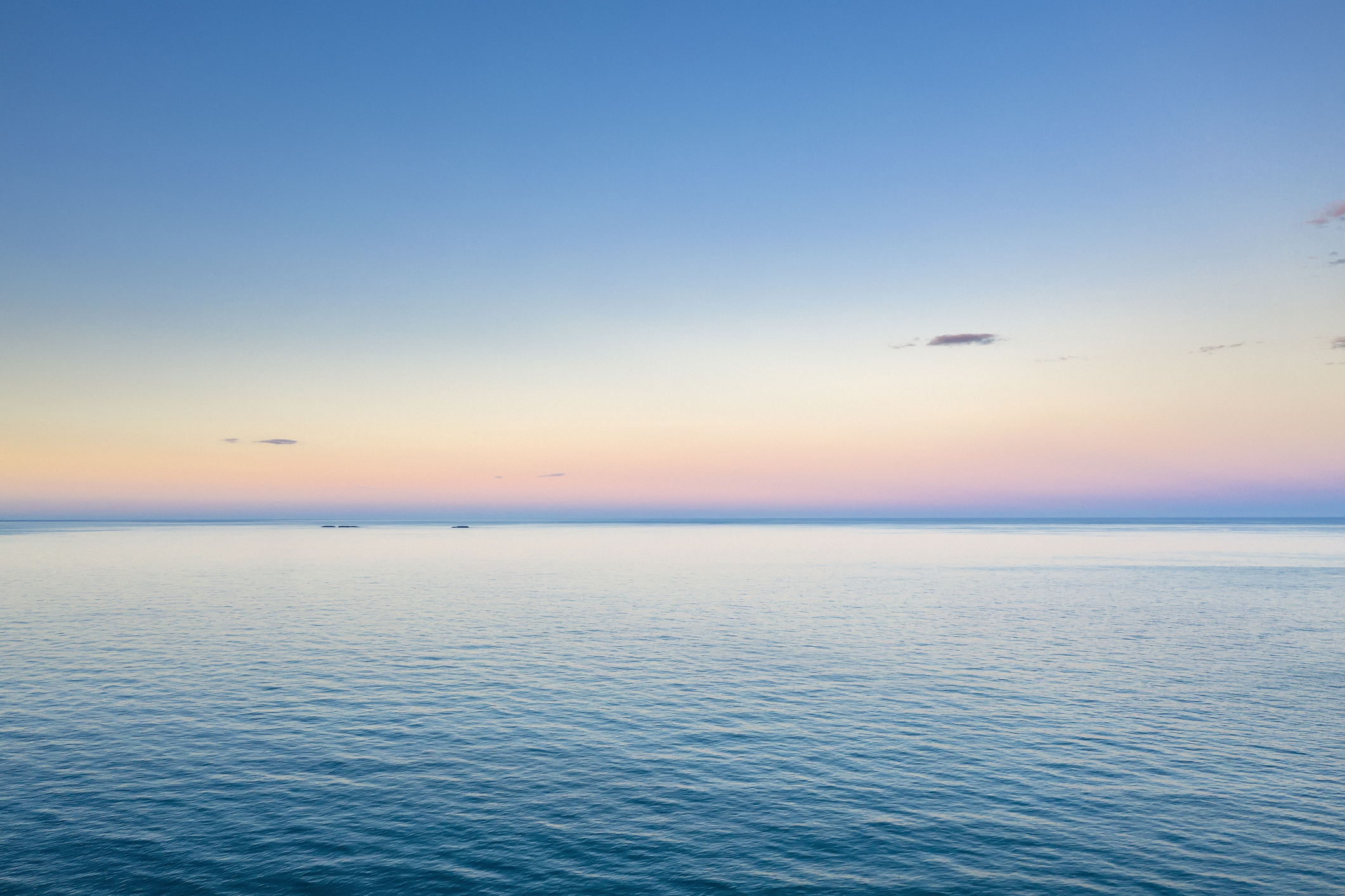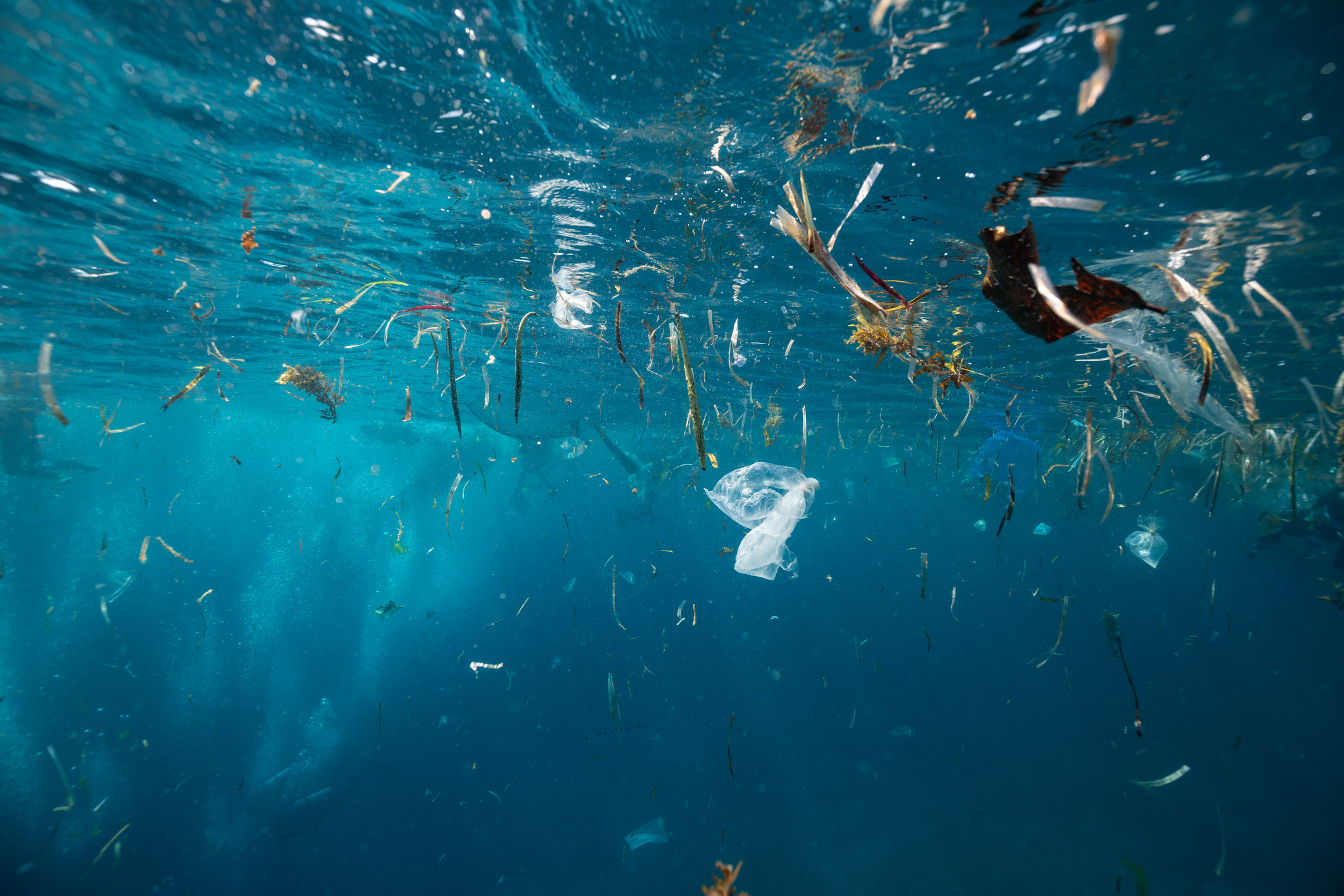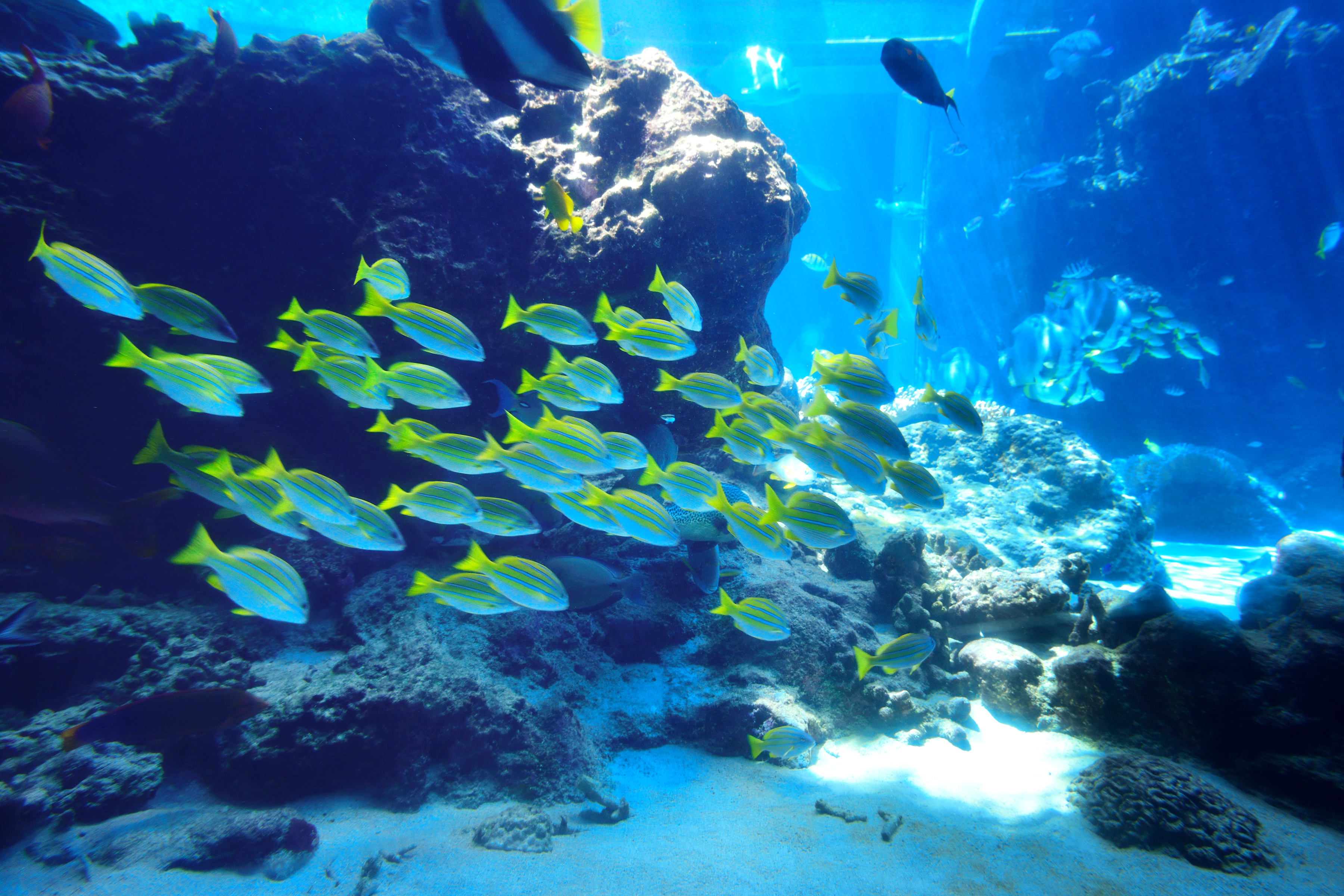
Celebrity news, beauty, fashion advice, and fascinating features, delivered straight to your inbox!
You are now subscribed
Your newsletter sign-up was successful
These are shocking.
Every so often, a documentary catches the world's attention. Last year, it was Tiger King. The year before that, Fyre. And this year, everyone seems to be talking about brand new Seaspiracy.
The documentary was filmed by the co-creators of Cowspiracy, a 2014 inside look at some of the horrible truths of meat factory farming. This time around, they're looking at fish farming, ocean destruction and modern slavery within the fishing industry.
Landing on Netflix a few weeks ago, it promises to be a 2021 version of Blackfish, changing our perception of the term 'ethical fishing' forever and shedding light on what it actually takes to farm 5,000,000 marine animals every minute.
It's packed full of sustainability buzzwords and standout facts - these are the nine worth having on your radar.
9 things Seaspiracy taught us
1. The oceans will be empty by 2048
In the documentary, experts claim that fishing takes 2.7 trillion fish from ocean every year. If this rate continues, marine biologist Dr Sylvia Alice Earle shares that the ocean will be empty - and soon.
“The estimate is by middle of 21st century if we keep taking wild fish at the level we are today there won’t be enough fish to catch,” predicting virtually empty oceans by by as soon as 2048," she shares.
Celebrity news, beauty, fashion advice, and fascinating features, delivered straight to your inbox!

2. Fishing methods are destroying more than just fish
Seaspiracy also claims that there isn't an industry on the planet that has taken the lives of this many mammals. Why? Partly because fish are farmed in such large numbers and high quantities, but also because the methods the fishermen use to catch fish wipe out much more than just that.
The documentary shares that methods such as 'bottom crawling' are decimating the ocean floor. Bottom crawling involves hauling heavy nets across the seabed and is believed to destroy around 3.9 billion acres of seabed every year, they claim.
3. Even farming creates waste
Exploring the option of fish farming as an alternative to wild fishing, the documentary makers claim to discover that an individual salmon farm makes as much organic waste as 20,000 humans.
Think about that for a second. It's a lot.
4. And results in problems of its own
Aside from the waste, the documentary makers also claim that a huge 38% of global mangrove forests have been all but destroyed as a result of prawn and shrimp farming.
5. Plastic household items isn't the biggest problem
We all know plastic waste is killing coral reefs and chocking marine wildlife. As co-director Tabrizi says during Seaspiracy: “There is a garbage truck load of plastic dumped every minute into the ocean and over 150 billion tonnes of microplastics are already there - they [the microplastics] now outnumber the stars in the milky way.”
But you might be surprised to hear that plastic straws, bottles and bags aren't the worst offender, or so they say. The doc makers reckon that the ocean's main plastic problem comes from the fishing nets and waste that are regularly dumped in it. Apparently as much as 46% of the total waste in what's known as the Pacific Ocean's 'garbage patch' comes from fishing nets, compared to straws which account for 0.03% of the ocean's daily plastic total.

6. All marine wildlife is being affected
Again, according to the documentary, as many as 50 million sharks are caught every year as what they term 'bycatch', aka an accidental catch.
So it's not just salmon and cod being killed, but sharks and dolphins, too, largely for no reason. This is problematic as it unnecessarily takes life, but also because sharks and dolphins are essential for fertilising phytoplankton.
And why are phytoplankton important? Well, the documentary states that they're really rather good at absorbing carbon dioxide, which is essential for reducing the Earth's carbon footprint and slowing down global warming.
To put it into context here: they say phytoplankton absorb four times as much as the Amazon rainforest. That's a lot.
7. You can't necessarily buy safe
Always opt for the 'dolphin safe' or 'sustainably caught' labels on your fresh or tinned fish purchases? Sadly, that might not be enough anymore, with the documentary sharing that fishing is such a widespread problem, even the labels that state the fish has been sustainably caught aren't true anymore.
Mark J. Palmer of the Earth Island Institute appeared in the documentary and said in statement post its release: “When asked whether we could guarantee that no dolphins were ever killed in any tuna fishery anywhere in the world, I answered that there are no guarantees in life, but that by drastically reducing the number of vessels intentionally chasing and netting dolphins as well as other regulations in place, that the number of dolphins that are killed is very low."
"We have observers on board but the observers can be bribed and are not out on a regular basis"
“The film took my statement out of context to suggest that there is no oversight and we don’t know whether dolphins are being killed. This is simply not true."
“The bottom line is that the Dolphin Safe label and fishing restrictions save dolphin lives. Yes, commercial fishing is out of control in many cases worldwide. But canned Dolphin Safe tuna is far more protective of dolphins and target fish stocks than the vast majority of other fisheries.”
8. 'Sustainable' doesn't necessarily mean sustainable
We've touched on this a lot here at Marie Claire - when is the term sustainable really meant, and when is it used for greenwashing?
The Seaspiracy directors reckon there is no such thing as sustainable fishing anymore - as María José Cornax, fisheries campaigns manager for Oceana Europe, says. “There is not a definition of sustainability as a whole for fisheries...The consumer cannot assess right not properly what fish is sustainable and what is not. The consumer cannot make an informed decision right now," he shares.

9. Slavery is a problem
You might be shocked to read this, but several times in the documentary, it is claimed that working on fishing boats is a form of modern day slavery.
Men who once worked on boats give anonymous interviews and share how they were kept against their will, in inhumane conditions.
The stats do all the talking really, with the documentary makers drawing comparison between the number of dead American soldiers from the five year Iraq war to the number of dead fish workers over the same five years - 4,500 compared to a reported 360,000. Captain Hammarstedt from Sea Shepherd shares: “[It is] the same criminal groups behind drug trafficking and human trafficking.”
So, is Seaspiracy 100% true?
As with any documentary, Seaspiracy has come under fire. Its critics claim that it shares a biased viewpoint and that some of the facts are unsubstantiated.
Marine biologist Bryce Stewart said on Twitter: "Does it highlight a number of shocking & important issues? Absolutely. But is it misleading at the same time? Yes. It regularly exaggerates & makes links where there aren't any. Many of the scenes were clearly staged and I know that at least one of the interviewees was taken out of context. I feel this film does more harm than good."
While we at MC can't confirm or deny the truth of the claims made in the documentary, what we can say is this: the Earth needs our help, and it needs it fast. Choose to do your bit in whatever way suits you - and if that's reducing your meat and fish consumption, good for you.

Ally is Marie Claire UK's Senior Health and Sustainability Editor, a well-regarded wellness expert, ten-time marathoner, and Boston Qualifying runner.
Utilising her impressive skillset and exceptional quality of writing, she pens investigative, review and first-person pieces that consistently demonstrate flair and originality.
As well as writing, Ally manages a team of freelancers, oversees all commissioning and strategy for her pillars, and spearheads the brand's annual Women in Sport covers, interviewing and shooting the likes of Mary Earps, Millie Bright, and Ilona Maher. Shortlisted for three BSMEs and winning one in 2022, Ally lives and breathes her verticals: her eye for a story and connections within the wellness sphere are unrivalled. Follow Ally on Instagram for more.
